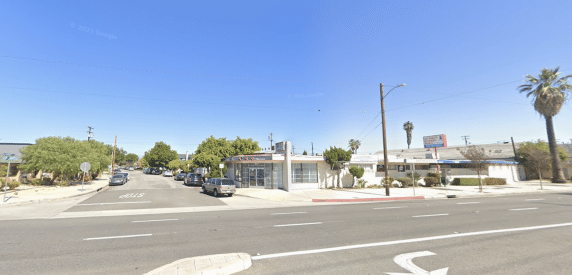In this article, you will find a glossary with common terms, or phrases and its definitions in regard to language used in a criminal court and bail bond contracts.
1275 Hold - A hold put on a defendant that will not allow him or her to bail out until there is proof that the source of funds is legitimate. For example, John Doe has been arrested for insurance fraud. The district attorney filed a 1275 hold making John ineligible for bail until there is proof that the source of funds for his bail is coming from a legitimate source.
Accused - A person that could potentially be charged with a crime. For example, John is accused of hitting Jane. John could be accused of battery.
Addendum - A legal document with thorough explanations of terms and conditions of the original contract. Addendums are in addition to a bail bond agreement.
Affidavit - A legal document that may be used in court for evidence.
Absconding - To leave, take flight or flee. Failure to surrender oneself to custody.
Arraignment - The first scheduled court date a defendant attends after an arrested.
Arrest - A lawful detention on an individual, or to deprive them of their freedom.
Arrest Warrants - Warrant issued by a judge; it gives authorization for the arrest of a person.
Attorney - a person that represents a defendant in court.
Bail - Monetary instrument that guarantees sum of money if the defendant fails to appear in court. A process where the defendant is released from custody while awaiting trial.
Bail agreement - Accordance made by the defendant and indemnitor for the underwriting of a bail bond.
Bail Bonds - A form of payment or monetary instrument that is written by a bail bondsman in agreement with the indemnitors (co -signers) and given to either the court or jailer for the release of the defendant being accused of a crime.
Bail Bond Agency - A licensed agency that sells bonds and acts like insurance guaranteeing the defendants return to court. A Bail Bond agency is appointed to under write for a surety.
Bail bondsman - An individual who is appointed with a surety and licensed by the department of insurance who helps with the under -writing process.
Bail Conditions - Conditions set by the bail company, its agents, court and or surety in which the defendant must follow otherwise he or she can risk having the bond revoked or surrendered.
Bail License - Is a license given by the department of insurance that allows a bail agent to underwrite with appointed surety(s). Note that each state requires bail agents to be licensed in their state. Visit the department of insurance home page for more information.
Bail review hearing - A hearing where a judge assesses the defendants charges, past criminal conduct, flight risks, public safety and sets conditions for release. In some cases, the judge could order the defendant to be released on his or her own recognizance, lower the original assigned bail amount or in some situations, raise and or deny bail.
Bail schedule - A list or breakdown of criminal charges and its associated standard bail amounts per offense. The bail schedules outline the amount of bail ordered for each specific charge and has policies that determine ordered bail amount. The bail schedules vary from county to county and are reviewed and renewed every year.
Bench Warrant - A warrant issued by the judge when the defendant does not appear for his or her scheduled court date. For example, Jane did not appear at her first court date, the judge issued a bench warrant for her.
Bond - Is a contract or agreement made by a bondsmen, indemnitors and defendant to guarantee the defendants return to court.
Bond clerk - A clerk at a courthouse that handles all bail bond matters.
Booking - This is followed shortly after an arrest. The detainee is processed at a jail or police station that documents the individual’s detention with information pertaining to arrest. Information collected usually is a photograph of the defendant, date, time, location of the arrest, alleged charge or charges that were violated, fingerprinted and subject to a background check to check for other warrants.
Booking number - A number assigned to the detainee identify him or her.
Bounty Hunter - An individual hired by the bail bond company to arrest or detain an individual out on bond.
Breach of contract - Neglecting to follow terms outlined in an agreement. Examples include but not limited to not checking in with the bondsman, failure to maintain contact, Skipping bail or failure to appear in court.
Case number - A series of numbers and or letters assigned by the clerk’s office to identify and track a case.
Cash Bond - A bail bond paid in full with cash in exchange for the defendants release while awaiting trial. Cash bond is returned minus some fees once the case has been settled and the bond is ordered exonerated. For more information on this process, visit your county court website.
Charges - Found in a criminal complaint presented by the district attorney stipulating the violation(s) and code section(s) the defendant allegedly violated.
Citation - An official notice stating the individual must attend court regarding a legal matter. For example, John Doe received a citation for driving without his license and was cited for his violation.
City jail - A police station or department that temporarily houses arrestees awaiting court dates.
Collateral - Item(s) of value that is given as security towards a bail bond. Examples are property, assets, or cash. For example, John used his car title as collateral towards his bond.
Conditional release - When someone in jail or prison is released but has terms and or conditions. Common example is probation terms or out on a bail bond.
Contempt of court - Disobeying orders from the court of law or officers.
Co -signor - A individual signing for or sharing liability in the event of a default.
County jail - A detention facility for defendants awaiting their trials or for defendants serving time for a case that has been settled and serving jail time as a condition of his or her conviction. County jail sentence terms are normally for individuals serving less then 1 year in jail.
Court order - A demand or condition issued by the court or sometimes judge outlining terms that must be followed.
Courthouse - An establishment where judicial hearings are held.
Criminal History - A record of a individuals past criminal conduct that reports the number of times someone was arrested, charged, and convicted.
Defendant - A term used in court to describe the individual defending against a case.
Detention facility - A place where an arrestee is held until he or she is transferred to jail or serving a short -term sentence for a case in which they were convicted.
Discharge - A verdict made by the judge that drops a case from the defendant with no punishment or convictions. For example, John’s case was discharged do to lack of evidence.
Discharge of bond - An action taken by a judicial officer, normally a judge, releasing a bail bond. See exoneration.
Dismissal - An act in which a judge or prosecutor rejects or throws out a case.
District Attorney - A prosecutor who works for the state presents evidence against a defendant in a court of law.
Exoneration - The release of a bond from the court once the case has been resolved in which a defendant is either released on conditions of a plea agreement or case is dismissed or is remanded into custody.
Extradite - The removal of a fugitive from one state or country to the jurisdiction of his or her state, county, and court.
Failure to appear (FTA) - When a defendant does not appear at a schedule court date.
Federal bonds - Is a bond that is issued to the federal court.
Felony - A serious crime that can be punishable by imprisonment, penalties, and fines.
Forfeiture - When a defendant out on bail has failed to appear to the court, the judge can issue a demand payment on the bond for the full amount posted for the defendant unless the defendant is recaptured, apprehended, or surrendered to the county sheriff’s department.
Fugitive - A person that is wanted by a government agency and evades being captured.
Fugitive recovery agent - Also known as bounty hunter, they have the authority to arrest those who are skipping bail or has forfeited on a bail bond.
Hold - An agency in which they have a defendant in custody and is ineligible for release. There a various holds such as probation or parole holds, or when a defendant is wanted in another state or county or is in the process of a extradition.
Immigration bonds - A federal bond issued to the United States government for a defendant with a open or pending immigration case that allows the release of a detainee and guarantees his or her return to court. This is different from a bail bond which is issued to the county within the State.
Incarceration - To be in prison or jail pending trial on a criminal case or serving a sentence for a convicted case.
Indemnitor - A co -signor or guarantor willing to assume liability of a bail bond and its terms and conditions.
Jail - A designated building where a person accused of a crime is held for a short period of time. When the sentencing is for a longer period, they are sent to prison or county jail.
Judge - A public officer that is appointed to cases in a court of law and renders verdicts.
Jump Bail - Also known as skipping bail. When an individual is out on bail and does not have intent on going to court and or fails to comply with the bail agents or agency normally outlined by terms and conditions of a bail contract.
Jury - A panel of twelve people that promise under oath to render a verdict on a case based on evidence and defenses presented at a trial hearing.
Criminal Defense Lawyer - Attorney who is licensed by the State Bar and legally practices law in the state in which they are licensed in.
Liens - A legal right or claim that grants possession of someone’s property to another individual that owes debt.
Magistrate - Also known as a judge that precedes over court cases.
Minute order - A court document generated by the court clerk’s office summarizing the past, present and future event proceedings that were held at a court.
Misdemeanor - A minor criminal offense, usually punishable by imprisonment no more than one year and or penalties and assessments.
Notice of Forfeiture - Is a document sent to both the surety company and bail bond company notifying the parties that a posted bond issued for a defendant has forfeited due to a missed court date and provides important dates regarding the demand on the face value of the bond posted.
Notice to Cosigner - Is a written document provided by the bail agent or surety outlining to the indemnitor of all liabilities, terms, and conditions.
Offense - The act of allegedly violating a state or federal law(s).
Own recognizance (OR) - When a judge releases a defendant on his or her oral or written promise to appear in court without the need to pay or post a bail bond. If the defendant fails to appear, the judge could issue a warrant and or set a bail amount that the defendant will have to pay or post with a bail bond to secure pre -trial release.
Parole - A convicted person that gets released early from prison but is still serving a sentence in which he or she must follow rules established by a parole officer and or judge.
Penal code - Are codes used in criminal proceedings that defines a charge.
Plea - A statement given by the defendant at arraignment stating they are guilty, not guilty or no contest from the charge being presented against them.
Posting bail - The process of a bail bond that is given to court for the release of the detainee.
Premium - A percentage charged on a bond, not exceeding 10% of the full -face value of a set bond amount. Example, John is arrested, and his bail is set at $15,000.00, John or his indemnitor would have to pay $1,500.00 to a bail bond agency.
Pretrial detention - An arrestee held by the State while awaiting trial.
Probation - a period outlined by the court after a defendant has been sentenced where he or she must follow and fulfill all terms and conditions in exchange for a plea deal.
Promissory note - A document signed by both the defendant and indemnitor(s) when the premium is not paid in full and is spread over time.
Public defender - An attorney appointed by the court that represents a defendant in a criminal case if he or she is unable to retain private counsel.
Release of custody - An order discharging the defendant from prison, jail or detention facility.
Release of liability - When the indemnitor no longer wants to be held accountable for a bail bond. A form must be signed, and the defendants will need to be surrendered to the authorities. This happens when the indemnitors no longer wish to assume liability on a defendant’s bail bond.
Reinstatement of bond - To reappoint and reassume liability on a bond after it has been forfeited. To reassume the bond, a defendant must contact his or her bail bond agent or agency.
Remand - When the judge finds that a defendant is not suitable to be out on their own recognizance, bail and is re -arrested. A bail bond can be issued unless the judge denies bail.
Revocation - The act where a judge decides to take away the defendant’s bond. A bail bond company or its authorized agents can revoke the bail bond for violating terms and conditions of pretrial release outlined by the court or bail bond company contracts.
Bail Skipping - When a defendant fails to appear in court and decides to run or flee. For example, John absconded from his court date and intends to evade the court and bail company.
Surety Bond - A bail bond issued by a bail bond companies agents in which they are licensed and appointed to transact in their state which allows the defendant to secure release pending his or her trial date.
Surety - A entity or insurance company that contracts with a bail bond company and appoints agents to transact and execute bail bond contracts under that company.
Surrender - When the bail bond company decides to relieve itself from the liability on a bond. This can occur if the defendant violates any conditions not fulfilled by the defendant or if the defendant poses a flight risk.
Trial - When the defendant’s case is presented to a jury and the jury renders a verdict of the charges being brought up against them after reviewing all the evidence and defenses.
Verdict - The final decision rendered by a jury. Examples of a rendered verdict is when the defendant is found guilty, innocent. If a jury cannot render a verdict, this is known as a hung jury.
Withdrawal of bail - Typically, when a judge decides the defendant is no longer suitable to be out on bail or make the defendant ineligible for pre -trial release.
Wobbler - A crime that can be classified as wither a misdemeanor or felony depending on the facts or elements present in the defendant’s case.
"*" indicates required fields






